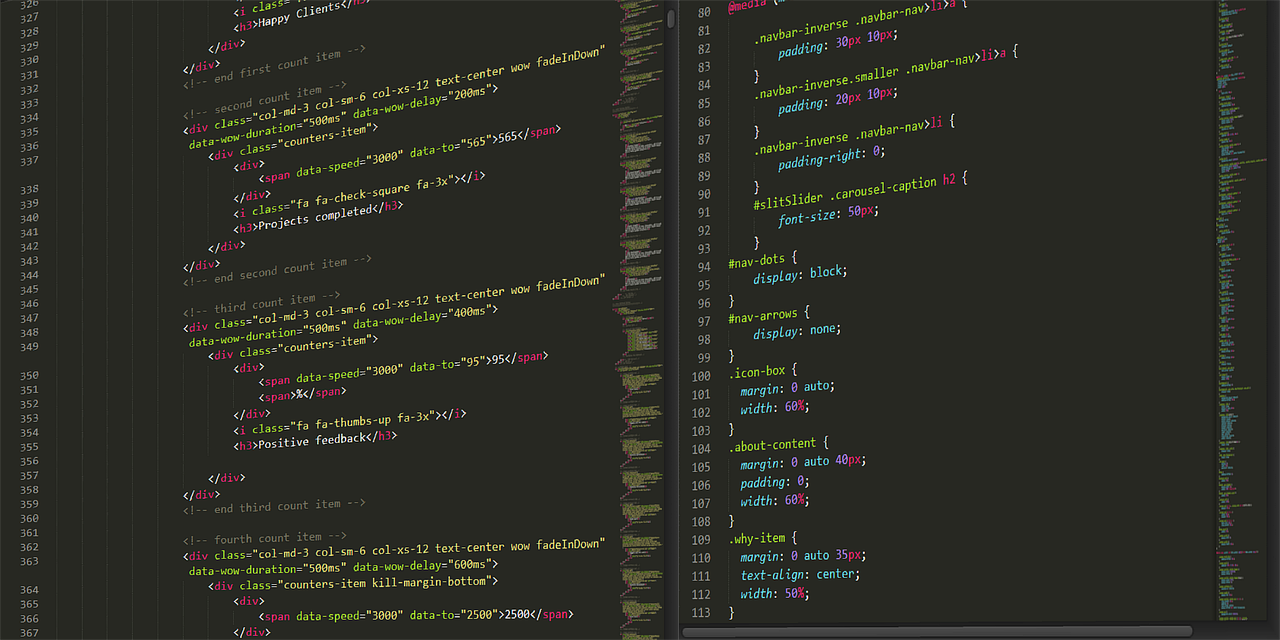The 936 area code is a significant part of Texas’s telecommunication landscape. Understanding its implications can help you make informed decisions when answering calls. This area code encompasses various regions, each with its unique charm and character. Here’s a detailed exploration of the 936 area code, including its coverage, history, local services, and potential scams.
The 936 area code primarily serves eastern Texas, covering a range of cities and communities. Notable cities within this area include Conroe, Lufkin, and Nacogdoches. These regions are known for their lush landscapes, friendly communities, and vibrant local cultures. Understanding the geography of this area code can aid in identifying local calls, making it easier to determine whether to answer or let it go to voicemail.
Established in 1996, the 936 area code emerged as a split from the 409 area code. This change was necessary to accommodate the growing population and the increasing demand for phone numbers in the region. The creation of the 936 area code reflects the evolution of telecommunication needs in Texas, as more residents and businesses require reliable communication services.
The 936 area code is home to several major cities, each offering a unique experience. Conroe, situated just north of Houston, is known for its beautiful parks and recreational activities. Lufkin, on the other hand, boasts attractions like the Ellen Trout Zoo and the Texas Forestry Museum, making it a popular destination for families and tourists. Nacogdoches, recognized as the oldest town in Texas, is rich in history and culture, with numerous festivals and events throughout the year.
Local services in the 936 area code include essential emergency services, businesses, and community organizations. Understanding these services can be crucial for both residents and visitors. Emergency services in this area are well-structured, ensuring quick response times. Additionally, the area is home to various local businesses, from restaurants to retail shops, that contribute to the community’s economy. Supporting these businesses not only fosters local growth but also enhances the overall community experience.
Like many regions, the 936 area code is not immune to scams. Awareness of common scams can help you avoid potential fraud. Common scams include impersonation calls from fake government agencies or tech support services. Recognizing these fraudulent attempts is vital for protecting your personal information and finances. If you receive a suspicious call, it’s essential to report it to local authorities or consumer protection agencies, helping to combat fraud in the community.
Identifying calls from the 936 area code can help you decide whether to answer. Familiarizing yourself with the area code’s characteristics is key. There are various apps and services available that can assist in identifying calls from specific area codes, enhancing your call screening process. If you receive a call from this area, consider the context and your contacts. If you’re unsure, letting it go to voicemail before deciding may be the best approach.
As populations grow, the demand for area codes may change. While there are no immediate plans for changes to the 936 area code, monitoring population growth and telecommunications trends is essential for future developments. Staying informed through local news sources or telecommunications updates will help you keep abreast of any changes that may affect your communication options in the future.
In conclusion, understanding the 936 area code is crucial for residents and those receiving calls from this region. From its geographical coverage to local scams, being informed can enhance your communication experience and ensure your safety.

What Regions Does the 936 Area Code Cover?
The 936 area code is a significant identifier for phone numbers in eastern Texas, encompassing a variety of cities and communities. Understanding which regions fall under this area code can be incredibly helpful for both residents and those receiving calls from this area. In this section, we will explore the geographical coverage of the 936 area code, including its major cities and surrounding areas.
The 936 area code primarily serves a diverse and vibrant region in eastern Texas. It includes several key cities such as Conroe, Lufkin, and Nacogdoches, each of which contributes uniquely to the area’s character and community life. Here’s a closer look at these cities and the surrounding regions:
- Conroe: Located just north of Houston, Conroe is one of the fastest-growing cities in Texas. This city is known for its beautiful parks, vibrant community events, and a strong economy that attracts new residents and businesses alike.
- Lufkin: Situated in Angelina County, Lufkin is recognized for its rich cultural heritage and natural beauty. The city is home to attractions such as the Ellen Trout Zoo and the Texas Forestry Museum, making it a popular destination for both locals and tourists.
- Nacogdoches: As the oldest town in Texas, Nacogdoches boasts a rich history and charming downtown area. The city is known for its historic sites, including the Nacogdoches Historic District, and is a hub for education with Stephen F. Austin State University located here.
In addition to these prominent cities, the 936 area code also covers several smaller towns and communities, including:
- Livingston: This town is nestled near Lake Livingston, offering a serene environment for outdoor enthusiasts.
- Center: Known for its friendly atmosphere, Center hosts various community events throughout the year.
- Woodville: Located in Tyler County, Woodville is surrounded by beautiful pine forests and is a gateway to the Big Thicket National Preserve.
Understanding the regions served by the 936 area code can help you identify local calls, especially if you receive a phone call from an unfamiliar number. By being aware of the cities and towns associated with this area code, you can make informed decisions about whether to answer or return calls. This knowledge is particularly beneficial for those who may be new to the area or who frequently receive calls from various locations.
In summary, the 936 area code covers a significant portion of eastern Texas, including major cities like Conroe, Lufkin, and Nacogdoches, as well as numerous smaller towns. Familiarizing yourself with these regions not only enhances your understanding of local communications but also enriches your connection to the community.

How Did the 936 Area Code Come Into Existence?
The 936 area code is an essential part of Texas’s telecommunications landscape, serving as a vital link for many residents and businesses. Established in 1996, this area code emerged from the 409 area code as a result of the growing demand for telephone numbers in the region. Understanding the origin of the 936 area code not only sheds light on its significance but also helps you appreciate the evolution of communication in this part of Texas.
As Texas experienced substantial population growth in the 1990s, the need for new telephone lines surged. The 409 area code, which previously encompassed a large portion of eastern Texas, became increasingly strained under the weight of new residents and businesses. This situation prompted the North American Numbering Plan Administration (NANPA) to implement a split, resulting in the establishment of the 936 area code. This change allowed for a more efficient distribution of telephone numbers, ensuring that residents and businesses could maintain reliable communication.
Initially, the 936 area code served a diverse range of communities, from bustling urban centers to quiet rural towns. This diversity has contributed to the area code’s unique character, as it encompasses a variety of cultures, industries, and lifestyles. Cities such as Conroe, Lufkin, and Nacogdoches have become prominent locations within the 936 area code, each offering its own distinct attractions and amenities.
Since its inception, the 936 area code has undergone various changes, reflecting the dynamic nature of the region it serves. As the population continues to grow, so does the demand for new telephone numbers. To address this issue, the telecommunications industry has adopted measures such as number pooling, which allows multiple companies to share blocks of numbers, effectively extending the lifespan of the area code.
Moreover, advancements in technology have also played a role in shaping the usage of the 936 area code. The rise of mobile phones and Voice over Internet Protocol (VoIP) services has transformed how people communicate, leading to a decrease in traditional landline usage. Despite these changes, the 936 area code remains a vital component of the local communication infrastructure, connecting residents and businesses across eastern Texas.
Looking ahead, the future of the 936 area code will likely be influenced by ongoing trends in population growth and technological advancements. As more people move to the area and new businesses emerge, the demand for telephone numbers will continue to rise. This may prompt further adjustments to the area code system, including potential splits or overlays.
In conclusion, the creation of the 936 area code in 1996 was a response to the growing need for telephone numbers in eastern Texas. Its establishment has allowed for improved communication, fostering connections among communities and businesses. Understanding the history and evolution of the 936 area code can provide valuable insights into the region’s growth and the future of telecommunications in Texas.

What Are the Major Cities Within the 936 Area Code?
The 936 area code is a significant identifier for a region in eastern Texas, encompassing a variety of cities that each offer their own unique charm and community vibe. Among these cities, Conroe and Lufkin stand out as key areas worth exploring. Understanding what makes these cities special can enhance your appreciation for the region and its diverse offerings.
Conroe, located just north of Houston, is a thriving city known for its picturesque landscapes and vibrant community life. The city has seen rapid growth in recent years, making it a hub for both residents and businesses. One of the standout features of Conroe is its natural beauty. The area is surrounded by lush forests and beautiful lakes, including the popular Lake Conroe, which offers a variety of recreational activities such as boating, fishing, and camping.
In addition to its outdoor attractions, Conroe hosts numerous community events throughout the year. The city is known for its lively festivals, including the Conroe Cajun Catfish Festival, which celebrates local culture with music, food, and fun activities for families. The downtown area is also home to a variety of shops, restaurants, and cultural venues, making it a great place to spend an afternoon.
- Parks and Recreation: Conroe boasts several parks, including Carl Barton Jr. Park and Wedgewood Golf Course, which cater to sports enthusiasts and families alike.
- Cultural Attractions: The Conroe Art League and Crighton Theatre provide artistic and theatrical experiences for residents and visitors.
Lufkin, another gem within the 936 area code, is renowned for its blend of natural beauty and cultural significance. The city is nestled in the heart of the piney woods and offers a plethora of outdoor activities. One of the must-visit attractions is the Ellen Trout Zoo, which is home to a variety of animals and provides educational programs for children and adults alike.
In addition, Lufkin is famous for the Texas Forestry Museum, which showcases the region’s rich history in the timber industry. This museum offers insights into the importance of forestry in Texas and features interactive exhibits that engage visitors of all ages. Lufkin also hosts several annual events, such as the Lufkin Rodeo, which celebrates Texas culture through rodeo competitions and family-friendly activities.
- Historical Sites: The Kurth Memorial Library is a local treasure, offering a vast collection of books and resources.
- Community Events: The Angelina County Farmers Market is a great place to find local produce and handmade goods.
Both Conroe and Lufkin reflect the rich tapestry of life in the 936 area code. Each city offers its own unique experiences, from outdoor adventures to cultural events, making them essential stops for anyone looking to explore eastern Texas.
Understanding the distinctive characteristics of these cities can enhance your experience, whether you’re a resident or a visitor. The 936 area code is not just a number; it’s a gateway to vibrant communities filled with history, culture, and opportunities for exploration.
What Is Unique About Conroe?
Conroe, Texas, is a city that beautifully blends the charm of small-town living with the conveniences of a growing urban area. Located just north of Houston, Conroe is surrounded by stunning natural landscapes, including the expansive Lake Conroe, which draws visitors for recreational activities and scenic views. This vibrant community is not just about its picturesque parks; it’s also rich in culture and history, making it a unique destination for both residents and tourists alike.
Conroe is known for its friendly atmosphere and strong sense of community. The city hosts numerous events throughout the year, such as the Conroe Cajun Catfish Festival, which celebrates the local culture with music, food, and family-friendly activities. These events foster a sense of belonging among residents and attract visitors from neighboring areas.
The city is also home to several beautiful parks, including Carl Barton Jr. Park and Conroe Central Park, which offer walking trails, sports facilities, and picnic areas. These green spaces provide a perfect backdrop for outdoor activities and community gatherings.
Founded in the late 19th century, Conroe has a rich history that is evident in its well-preserved architecture and historical sites. The Heritage Museum of Montgomery County offers a glimpse into the area’s past, showcasing artifacts and exhibits that tell the story of Conroe’s development from a lumber town to a thriving city.
Additionally, the historic downtown area features charming storefronts and local businesses, many of which have been around for decades. This blend of history and modernity creates a unique character that residents cherish.
Aside from its parks and historical sites, Conroe boasts several attractions that cater to various interests. The Conroe Art League promotes local artists and hosts exhibitions that highlight the creative talents within the community. For those who enjoy live performances, the Crighton Theatre offers a range of shows, from musicals to plays, providing entertainment for all ages.
Sports enthusiasts will find plenty to love in Conroe as well. The city has several sports leagues for children and adults, promoting an active lifestyle and community involvement. With its proximity to Houston, residents have easy access to professional sports events, concerts, and cultural experiences in the larger metropolitan area.
As Conroe continues to grow, its future looks bright. The city is experiencing a surge in population due to its affordable housing and quality of life. New developments and businesses are emerging, enhancing the local economy and providing more opportunities for residents. The city’s commitment to maintaining its parks and community events ensures that Conroe will remain a desirable place to live and visit for years to come.
In summary, Conroe is a city that offers a unique blend of history, community spirit, and natural beauty. Its vibrant events, rich heritage, and promising future make it a standout location within the 936 area code.
What Attractions Can You Find in Lufkin?
Lufkin, a charming city nestled in the heart of East Texas, is a destination that beautifully blends the wonders of nature with rich cultural experiences. Visitors to Lufkin can expect to encounter a variety of attractions that cater to diverse interests, from wildlife enthusiasts to history buffs. This article delves into some of the most notable attractions that make Lufkin a must-visit location.
The Ellen Trout Zoo is one of Lufkin’s crown jewels, offering an engaging experience for visitors of all ages. Spanning over 50 acres, this zoo is home to more than 500 animals representing over 100 species. The zoo not only focuses on entertaining its guests but also emphasizes education and conservation. Visitors can enjoy a leisurely stroll along the well-maintained paths, where they can observe animals in their naturalistic habitats.
- Interactive Exhibits: The zoo features various interactive exhibits, including a petting zoo where children can get up close and personal with friendly farm animals.
- Educational Programs: Ellen Trout Zoo offers educational programs that teach visitors about wildlife conservation and the importance of protecting endangered species.
- Special Events: Throughout the year, the zoo hosts special events such as Zoo Boo for Halloween and summer camps for children, making it a lively place to visit.
Another significant attraction in Lufkin is the Texas Forestry Museum, which showcases the rich history of the timber industry in the region. This museum is dedicated to preserving and educating the public about the vital role that forestry has played in the development of East Texas.
- Exhibits and Artifacts: The museum features a variety of exhibits, including vintage logging equipment and photographs that tell the story of the timber industry’s evolution.
- Interactive Displays: Visitors can engage with interactive displays that provide insights into the forestry process, from tree planting to harvesting.
- Community Events: The museum often hosts community events and workshops, allowing locals and tourists alike to learn more about sustainable forestry practices.
Lufkin is not just about zoos and museums; it also boasts stunning natural landscapes that invite outdoor enthusiasts to explore. The city is surrounded by beautiful parks and recreational areas.
- Lake Sam Rayburn: Just a short drive from Lufkin, this lake is perfect for fishing, boating, and picnicking. It’s a great spot for families looking to enjoy a day outdoors.
- Angelina National Forest: For those who love hiking and nature, the nearby Angelina National Forest offers trails that wind through lush greenery, providing a perfect escape into nature.
- Local Parks: Lufkin is home to several parks equipped with playgrounds, walking trails, and sports facilities, making it easy for families to enjoy a day out.
In summary, Lufkin is a city rich in attractions that cater to a wide range of interests. From the engaging exhibits at the Ellen Trout Zoo and the informative displays at the Texas Forestry Museum to the beautiful outdoor spaces, Lufkin offers something for everyone. Whether you’re a local or a visitor, exploring these attractions will surely enrich your experience in this vibrant East Texas city.

Are There Any Important Local Services Associated with the 936 Area Code?
Understanding the 936 Area Code: The 936 area code is not just a series of numbers; it represents a vibrant community in eastern Texas. Knowing the local services associated with this area code is essential for both residents and visitors. This knowledge can significantly impact your daily life, especially in emergencies or when seeking local businesses.
The 936 area code encompasses a variety of essential services that cater to the needs of its residents. From emergency services to local businesses, understanding these resources can enhance your living experience in this region.
Emergency services in the 936 area code are robust and well-coordinated. Residents can rely on local police, fire departments, and medical services to respond quickly to emergencies. For instance, the Conroe Police Department and the Lufkin Fire Department are known for their efficient response times and community engagement. Understanding how these services operate is crucial for safety.
- Police Services: The local police departments are equipped to handle various situations, from traffic incidents to criminal activities.
- Fire Services: Fire departments not only respond to fires but also conduct safety inspections and community education programs.
- Medical Services: Hospitals and urgent care centers are readily available, ensuring that residents have access to necessary healthcare.
The 936 area code is home to a diverse array of local businesses that contribute to the community’s character and economy. From quaint shops to popular dining spots, these businesses reflect the unique culture of the area. Supporting local businesses fosters not only economic growth but also a sense of community.
| Business Type | Examples | Why Support Them? |
|---|---|---|
| Restaurants | Local diners and BBQ joints | Unique flavors and community atmosphere |
| Shops | Art galleries and boutiques | Support local artisans and unique products |
| Services | Hair salons and repair shops | Personalized service and community ties |
For visitors, discovering these local businesses can enhance your experience. Whether you’re looking for a cozy café or a unique gift shop, the 936 area code offers a variety of options that reflect the local culture.
Local services play a pivotal role in enhancing the quality of life in the 936 area code. They provide essential support and foster a sense of belonging among residents. For example, community events organized by local businesses and emergency services promote engagement and unity. Furthermore, these services often participate in local charities and initiatives, showcasing their commitment to the community.
In conclusion, understanding the local services associated with the 936 area code is vital for both residents and visitors. From emergency services that ensure safety to local businesses that enrich community life, these resources are integral to the fabric of the region. Being informed about these services not only enhances your experience but also allows you to contribute positively to the community.
How Do Emergency Services Operate in This Area?
Emergency services in the 936 area code are a vital component of community safety and well-being. These services are designed to respond quickly to emergencies, ensuring that residents receive the assistance they need in critical situations. Understanding how these services operate can greatly enhance your peace of mind and preparedness.
The 936 area code encompasses various emergency services, including:
- Police Departments: Local police provide law enforcement, crime prevention, and emergency response.
- Fire Departments: Firefighters respond to fires, rescue operations, and hazardous material incidents.
- Emergency Medical Services (EMS): Paramedics and EMTs offer critical medical care and transport to hospitals.
Emergency services in the 936 area code are structured to prioritize rapid response. Here’s how they achieve this:
- Centralized Dispatch Systems: Most emergency services utilize a centralized dispatch system that allows for quick communication between callers and responders. This system ensures that the closest available unit can be dispatched immediately.
- Geographic Information Systems (GIS): Many departments use GIS technology to map out their service areas. This technology helps them to identify the fastest routes to emergencies, minimizing response times.
- Community Training Programs: Regular training and drills for emergency personnel ensure that they are prepared for a variety of situations, allowing them to act swiftly and effectively when real emergencies arise.
Community awareness is crucial in enhancing the effectiveness of emergency services. Residents are encouraged to:
- Know Emergency Numbers: Familiarize yourself with local emergency numbers, including 911 for immediate assistance.
- Participate in Local Safety Programs: Many communities offer programs that educate residents on emergency preparedness, first aid, and disaster response.
- Stay Informed: Follow local news and social media channels for updates on emergencies, road closures, and safety tips.
Preparation is key to ensuring your safety and the safety of others during emergencies. Here are some practical tips:
- Create an Emergency Kit: Assemble a kit with essential supplies, including water, non-perishable food, medication, and a flashlight.
- Develop a Family Communication Plan: Ensure that all family members know how to reach each other in case of an emergency.
- Practice Drills: Regularly practice emergency drills with your family to ensure everyone knows what to do in various scenarios.
In conclusion, understanding how emergency services operate in the 936 area code can significantly enhance your safety and preparedness. By familiarizing yourself with the available services, response strategies, and community involvement, you can contribute to a safer environment for everyone. Remember, being informed and prepared is the best way to handle emergencies effectively.
What Local Businesses Should You Know About?
When exploring the vibrant culture of the 936 area code, one cannot overlook the importance of local businesses. They are not just commercial entities; they embody the spirit and character of the community. From cozy restaurants serving up local cuisine to quaint shops showcasing handmade crafts, the diversity of businesses in this region is truly remarkable. Supporting these enterprises is crucial, as it not only enhances the local economy but also strengthens community bonds.
Local businesses play an essential role in fostering economic growth. When you spend money at a local restaurant or shop, a significant portion of that money stays within the community. This creates a positive ripple effect, stimulating the local economy and providing jobs for residents. According to studies, local businesses are known to reinvest in their communities at a higher rate compared to national chains, which often funnel profits elsewhere.
- Restaurants: The 936 area is home to a variety of dining options, from family-owned diners to upscale eateries. Many restaurants focus on using local ingredients, which not only supports local farmers but also provides diners with fresh and delicious meals.
- Shops: Unique boutiques and shops offer everything from handmade crafts to vintage clothing. These businesses often reflect the local culture and provide a shopping experience that you won’t find in big-box stores.
- Service Providers: Local service providers, including salons, auto repair shops, and fitness centers, are integral to the community. They often offer personalized services that cater to the specific needs of local residents.
- Art Galleries: The area boasts several art galleries that showcase local talent. These venues not only provide a platform for artists but also contribute to the cultural richness of the community.
Supporting local businesses can be as simple as choosing to shop or dine locally instead of opting for national chains. Here are some practical tips:
- Shop Local: Make a conscious effort to buy from local stores rather than online or big-box retailers. This helps keep money within the community.
- Spread the Word: Share your positive experiences with friends and family or on social media. Word-of-mouth is a powerful tool for local businesses.
- Participate in Events: Attend local events, markets, and festivals. These gatherings often feature local vendors and provide an excellent opportunity to discover new businesses.
- Leave Reviews: Online reviews can significantly impact a local business’s success. Take a moment to leave a positive review on platforms like Google or Yelp.
In conclusion, the local businesses within the 936 area code are vital to the community’s identity and economic health. By choosing to support them, you are not just making a purchase; you are contributing to the well-being and vibrancy of the community. So, the next time you consider where to eat or shop, remember the impact your choice can have on your local economy.

What Should You Know About Scams Related to the 936 Area Code?
The 936 area code, which covers parts of eastern Texas, has seen a rise in phone scams that can catch residents off guard. Understanding these scams is crucial for protecting yourself and your finances. Scammers are becoming increasingly sophisticated, using technology and social engineering tactics to deceive unsuspecting victims. Here’s what you need to know to stay safe.
What Types of Scams Are Common in the 936 Area Code?
Several scams are prevalent in the 936 area code, often designed to exploit fear or urgency. One common type is the imposter scam, where callers pose as representatives from government agencies, such as the IRS or Social Security Administration. They may claim that you owe money or that your benefits are at risk, pressuring you to provide personal information or make immediate payments.
Another frequent scam involves tech support. Scammers may call claiming to be from well-known tech companies, stating that your computer has been compromised. They often request remote access to your device or ask for payment to fix non-existent issues. These scams can lead to identity theft and financial loss, making it essential to recognize the signs.
How Can You Protect Yourself from Scams?
- Be Skeptical: Always question unsolicited calls. If someone claims to be from a government agency, hang up and call the official number to verify.
- Do Not Share Personal Information: Legitimate organizations will never ask for sensitive information over the phone. Protect your personal data at all costs.
- Use Call Blocking Tools: Many smartphones and landlines offer features to block unwanted calls. Consider using these tools to reduce the number of scam calls you receive.
What Should You Do If You Encounter a Scam?
If you receive a suspicious call, it’s important to act swiftly:
- Document the Call: Write down the caller’s number, the time of the call, and any details about the conversation. This information can be helpful for authorities.
- Report the Scam: Contact local authorities or consumer protection agencies to report the scam. This not only helps you but also protects others in your community.
- Spread the Word: Inform friends and family about the scams you encounter. Awareness is a powerful tool in preventing others from falling victim.
How Can You Stay Informed About Scams?
Staying informed is key to avoiding scams. Follow local news sources and community bulletins for updates on prevalent scams in the area. Many organizations also provide resources and alerts regarding new scams. Engaging with community forums can also help you share experiences and learn from others.
In conclusion, being aware of the types of scams associated with the 936 area code is essential for protecting yourself and your loved ones. By staying vigilant, questioning unsolicited calls, and reporting suspicious activity, you can help combat phone fraud effectively. Remember, knowledge is your best defense against scammers.
What Common Scams Are Associated with This Area Code?
In today’s digital age, phone scams have become increasingly prevalent, affecting individuals across various demographics. One area code that has gained attention for its association with scams is the 936 area code, which serves parts of eastern Texas. Understanding the types of scams that are commonly linked to this area code can help protect you from potential financial loss and emotional distress.
Scammers often use tactics that exploit trust and urgency, making it crucial for residents and individuals receiving calls from this area code to be vigilant. Here are some of the most common scams:
- Impersonation Calls: Scammers frequently impersonate government agencies, such as the IRS or Social Security Administration. They may claim that you owe money or that your benefits are at risk, pressuring you to provide personal information or make immediate payments.
- Tech Support Scams: In this scam, callers pose as representatives from well-known tech companies, claiming that there is a problem with your computer or device. They may request remote access to your system or ask for payment to fix a non-existent issue.
- Lottery or Prize Scams: Victims receive calls claiming they have won a lottery or prize but must pay a fee to claim their winnings. This is a classic scam that preys on individuals’ hopes of financial gain.
- Fake Charity Requests: Particularly after natural disasters or during the holiday season, scammers may call asking for donations to fake charities. They exploit the goodwill of individuals, especially those looking to help others.
Recognizing the signs of a scam can save you from significant financial loss. Here are some tips to help you identify potential scams:
- Unsolicited Calls: Be cautious of unexpected calls from unknown numbers. If the caller is asking for personal information or payment, it’s a red flag.
- Pressure Tactics: Scammers often create a sense of urgency, pushing you to act quickly. Take your time to think things through and verify the caller’s identity.
- Inconsistent Information: If the information provided by the caller seems inconsistent or doesn’t match what you know, it’s likely a scam.
If you suspect that you have received a scam call, it is essential to take action:
- Do Not Engage: Avoid giving out any personal information. Hang up if you feel uncomfortable.
- Verify the Caller: Look up the official number of the organization they claim to represent and call them directly to verify the legitimacy of the call.
- Report the Call: Report suspicious calls to local authorities or consumer protection agencies. This helps raise awareness and combat fraud.
Understanding the common scams associated with the 936 area code is vital for protecting yourself and your finances. By being aware of these tactics and knowing how to respond, you can safeguard your personal information and avoid falling victim to scams.
How Can You Report Suspicious Calls?
Receiving a call from an unknown number can be unsettling, especially if the caller seems suspicious. Understanding how to report these calls is crucial in protecting yourself and others from potential fraud. In this section, we will explore the steps you can take to report suspicious calls effectively and the importance of doing so.
When you receive a suspicious call, it’s not just a matter of personal inconvenience; it can be a part of a larger pattern of fraud affecting many individuals. Reporting these calls helps local authorities and consumer protection agencies track and combat fraudulent activities. By sharing your experience, you contribute to a collective effort to safeguard others from falling victim to scams.
- Local Authorities: Contact your local police department if you feel threatened or believe the call is part of a criminal activity.
- Consumer Protection Agencies: Agencies like the Federal Trade Commission (FTC) in the United States collect reports on fraudulent calls and scams.
- Phone Service Providers: Many phone companies have dedicated teams to handle reports of suspicious calls and can take action against scammers.
Before making a report, gather as much information as possible about the suspicious call. This includes:
- Caller ID: Note the phone number and any information displayed on your caller ID.
- Time and Date: Record when the call occurred, as this can help authorities track patterns.
- Call Content: Write down what the caller said, including any threats or requests for personal information.
- Your Response: Note how you responded to the call, including whether you provided any information.
Once you have gathered the necessary information, you can proceed to report the suspicious call:
- Contact Local Authorities: Call your local police department’s non-emergency number or visit their website to file a report.
- File a Report with the FTC: Visit the FTC’s website to submit your report online. They provide a simple form that guides you through the process.
- Notify Your Phone Service Provider: Call your provider’s customer service and inform them about the suspicious call. They may have additional steps to take.
After you report the suspicious call, authorities will review the information you provided. They may use it to investigate the caller or to warn others in your community. While you may not receive direct feedback about the outcome, your report contributes to a larger database that helps in identifying and stopping fraudulent activities.
In conclusion, reporting suspicious calls is a vital step in protecting not only yourself but also your community. By being proactive and sharing your experiences, you play a significant role in the fight against fraud and scams. Remember, if something feels off, it’s always better to report it and let the authorities handle it.

How Can You Identify Calls from the 936 Area Code?
Receiving a call from an unfamiliar area code can be a source of anxiety for many. Understanding how to identify calls from the 936 area code is essential for making informed decisions about whether to answer. This area code, which serves parts of eastern Texas, is associated with various cities, including Conroe, Lufkin, and Nacogdoches. Familiarizing yourself with the characteristics of this area code can significantly enhance your call screening process.
What Makes the 936 Area Code Unique?
The 936 area code was created in 1996 as a split from the 409 area code, primarily serving the eastern regions of Texas. It encompasses a mix of urban and rural areas, which can impact the types of calls you might receive. Understanding the demographics and the nature of businesses and services in this region can provide context when you receive a call. For instance, calls from this area code may include local businesses, government services, or even personal contacts.
Utilizing Technology for Call Identification
In today’s digital age, there are numerous tools available that can assist you in identifying calls from specific area codes. Here are some effective methods:
- Caller ID Apps: Applications like Truecaller and Hiya can help you identify unknown numbers by showing the caller’s name and location based on their area code.
- Reverse Phone Lookup: Websites such as Whitepages or AnyWho allow you to enter a phone number and find out more about the caller, including their location and whether they are associated with any scams.
- Contact List Management: Regularly updating your contacts can help you recognize familiar numbers more easily. If you frequently receive calls from the 936 area code, consider saving known contacts to avoid confusion.
What Should You Do If You Receive a Call from This Area?
If you receive a call from a number with a 936 area code, consider the following steps:
- Let It Go to Voicemail: If you’re unsure about the caller, let the call go to voicemail. Legitimate callers will often leave a message.
- Assess the Context: Think about whether you know anyone in that area or if you are expecting a call from a business based there.
- Research the Number: If a voicemail is left, listen carefully for details. You can also use the caller ID tools mentioned earlier to investigate further.
In conclusion, identifying calls from the 936 area code involves a combination of understanding the characteristics of the area and utilizing technology effectively. By being proactive and informed, you can make better decisions about which calls to answer and which to avoid.
What Tools Are Available to Identify Calls?
In today’s fast-paced world, receiving phone calls from unknown numbers can be both annoying and concerning. With the rise of spam calls and potential scams, it’s essential to know who is calling before you answer. Thankfully, there are various tools and applications available that can help you identify calls from specific area codes, including the 936 area code. These tools not only enhance your call screening process but also provide peace of mind when answering the phone.
Call identification tools come with a plethora of advantages. First and foremost, they can help you avoid unwanted calls from telemarketers and scammers. By identifying the source of the call, you can make an informed decision about whether to answer or ignore it. This is particularly useful for individuals who receive numerous calls daily, allowing them to focus on important communications.
- Peace of Mind: Knowing who is calling can alleviate anxiety, especially when receiving calls from unfamiliar numbers.
- Time Efficiency: By filtering out spam calls, you can save valuable time during your day.
- Enhanced Security: Identifying potential scams helps protect you from financial loss and identity theft.
There are several types of tools designed to identify calls, ranging from mobile applications to online services. Here’s a breakdown of some popular options:
| Tool Type | Description | Examples |
|---|---|---|
| Mobile Apps | Applications that run on your smartphone to identify unknown callers. | Truecaller, Hiya, RoboKiller |
| Web Services | Online platforms where you can enter a phone number to check its origin. | Whitepages, AnyWho |
| Carrier Services | Services provided by your phone carrier that can block or identify spam calls. | AT&T Call Protect, Verizon Call Filter |
Most call identification tools work by utilizing a vast database of phone numbers. When a call comes in, the tool cross-references the incoming number with its database to provide information about the caller. This can include the caller’s name, location, and whether the number is associated with spam or scams. Some applications even allow users to contribute to the database by reporting unwanted calls, which helps improve the accuracy of the service.
When selecting a call identification tool, consider the following factors:
- Accuracy: Look for tools with high accuracy rates in identifying numbers.
- User Reviews: Check reviews and ratings from other users to gauge effectiveness.
- Cost: Some tools are free, while others may require subscriptions for advanced features.
In conclusion, utilizing call identification tools can significantly enhance your call screening process. By being informed about who is calling, you can protect yourself from unwanted interruptions and potential scams. Whether you choose a mobile app, a web service, or a carrier feature, the right tool can make a substantial difference in your phone experience.
What Should You Do If You Receive a Call from This Area?
Receiving a call from an unfamiliar area code can be unsettling, especially if you’re not sure whether to answer. If you find yourself on the receiving end of a call from the 936 area code, it’s essential to proceed with caution. This area code covers parts of Texas, including cities like Conroe, Lufkin, and Nacogdoches. Here’s a comprehensive guide on how to handle such calls effectively.
When your phone rings with a call from the 936 area code, the first step is to assess the situation. Here are some practical tips to help you decide whether to answer or let it go to voicemail:
- Consider Your Contacts: Check if you have any known contacts in the 936 area. If you do, it’s likely a legitimate call. If not, think about whether you’ve recently applied for jobs, entered contests, or signed up for services that might originate from this area.
- Let It Go to Voicemail: If you’re unsure about the caller’s identity, it’s perfectly acceptable to let the call go to voicemail. Most legitimate callers will leave a message if it’s important. This also gives you time to research the number if needed.
- Research the Number: Use online resources or apps to look up the phone number. Many websites and applications provide caller ID services that can help identify whether the call is from a scammer or a legitimate source.
- Be Cautious with Information: If you decide to answer the call, be cautious about sharing personal information. Scammers often use tactics to extract sensitive data. Verify the caller’s identity before providing any information.
- Trust Your Instincts: If something feels off about the call, trust your instincts. It’s better to err on the side of caution. If the caller pressures you or seems suspicious, it’s wise to hang up.
Understanding the common scams associated with the 936 area code can further enhance your ability to protect yourself. Many scams involve impersonation of government agencies or tech support services. Always be vigilant and informed about these tactics.
If you suspect that the call was a scam, consider reporting it to local authorities or consumer protection agencies. This helps combat fraud and protects others from similar experiences. Document any details you can remember, including the number and a brief description of the interaction.
In conclusion, receiving a call from the 936 area code doesn’t have to be a cause for concern. By following these steps, you can make informed decisions about whether to engage with the caller. Always prioritize your safety and privacy, and don’t hesitate to seek help if you encounter suspicious activity.

What Are the Future Trends for the 936 Area Code?
The 936 area code is an essential part of the telecommunications landscape in eastern Texas. As populations expand and technology evolves, understanding the future trends associated with this area code becomes increasingly important. This article delves into potential changes and developments that could impact residents and businesses in the region.
Area codes are not static; they evolve based on various factors, primarily population growth and demand for phone numbers. As cities grow and new neighborhoods emerge, the need for additional phone lines increases. This is particularly relevant in rapidly expanding areas like Conroe and Lufkin, where new developments can lead to a surge in residents. When the available numbers in an area code are exhausted, telecommunications regulators may consider splitting the area code or overlaying it with a new one.
Additionally, technological advancements such as mobile phones and VoIP (Voice over Internet Protocol) services have changed how people communicate. These technologies can sometimes alleviate pressure on traditional phone lines, but they also contribute to the demand for more numbers. As more people rely on mobile devices, the need for unique area codes may become even more pronounced.
Population growth is a primary driver of area code changes. In the case of the 936 area code, the region has seen significant growth in recent years. Cities like Conroe, which is part of the Houston metropolitan area, are experiencing rapid expansion, leading to an influx of new residents. This trend places a strain on the existing telecommunications infrastructure.
As more people move to these areas, the demand for phone numbers increases. If the current area code cannot accommodate the growing number of residents and businesses, regulators may need to implement changes. This could involve creating a new area code for certain regions or splitting the existing one to ensure that everyone has access to a phone number.
While there are no immediate plans to change the 936 area code, it is essential to stay informed about potential developments. Telecommunications authorities continuously monitor population trends and usage patterns to anticipate future needs. If the growth continues, it is likely that discussions regarding a split or overlay will emerge.
For instance, if Conroe continues to grow at its current pace, it may be necessary to establish a new area code specifically for that city or its immediate surroundings. This change could help alleviate the demand for numbers in the 936 area code and ensure that residents have access to the communication services they need.
Staying informed about area code changes is crucial for residents and businesses alike. One way to keep up with developments is by following local news sources that cover telecommunications issues. Additionally, the Federal Communications Commission (FCC) and state public utility commissions often provide updates on area code changes and the factors influencing them.
Community forums and social media groups can also be valuable resources for discussions about area codes and local issues. Engaging with your community can help you stay ahead of any changes that may impact your communication options.
In summary, understanding the future trends of the 936 area code is vital for anyone living in or doing business in eastern Texas. As populations grow and technology evolves, being aware of potential changes can help you prepare for the future of communication in your area.
Will the 936 Area Code Be Split or Changed Soon?
The 936 area code, which serves a variety of regions in eastern Texas, has been a stable part of the telecommunications landscape since its inception. However, as population dynamics shift and technology evolves, many residents and businesses are left wondering about the future of this area code. Will it undergo changes, or is it likely to remain as it is? This article delves into the current status and potential future of the 936 area code, providing insights into what may lie ahead.
Area codes are not just random numbers; they are essential components of the telecommunications infrastructure. Several factors can lead to changes in area codes, including:
- Population Growth: As more people move into a region, the demand for phone numbers increases. This is particularly true in rapidly growing cities within the 936 area code, such as Conroe and Lufkin.
- Technological Advancements: The rise of mobile phones and VoIP services has drastically changed how we communicate. This can lead to a need for more area codes to accommodate the growing number of devices.
- Regulatory Decisions: Telecommunications regulatory bodies closely monitor area code usage and will implement splits or overlays when necessary to ensure a sufficient supply of phone numbers.
Currently, there are no immediate plans to split or change the 936 area code. The Texas Public Utility Commission monitors population growth and telecommunications trends closely, and as of now, the area code is functioning adequately. However, this does not mean that changes will not occur in the future. The situation can evolve based on the aforementioned factors.
Residents in the 936 area code can take proactive steps to stay informed about potential changes:
- Follow Local News: Local news outlets often report on significant changes in telecommunications, including area code updates.
- Check Utility Commission Updates: The Texas Public Utility Commission’s website provides updates on area code management.
- Engage with Community Forums: Online community forums and social media groups can be great resources for real-time discussions about local issues, including telecommunications.
If changes to the 936 area code do happen, it’s important to be prepared:
1. Update your contact information with important contacts and businesses.2. Be aware of any new dialing procedures that may be implemented.3. Stay vigilant about scams that may arise during transitions.
In summary, while there are currently no immediate plans for changes to the 936 area code, it is essential to stay informed about population growth and telecommunications trends. Being proactive can help residents navigate any future developments effectively. Understanding the dynamics at play will ensure that you are prepared for whatever may come next.
How Can You Stay Updated on Area Code Changes?
Staying updated on area code changes, particularly for the 936 area code, is essential for residents and businesses alike. As telecommunications evolve, so do the needs of communities. To ensure seamless communication, it’s important to be aware of any changes that may affect your phone calls. Here are several effective ways to stay informed:
Understanding the significance of area code changes can greatly enhance your communication experience. Area codes are not just a series of numbers; they represent specific regions and can affect how you connect with friends, family, or businesses. Changes can lead to confusion, missed calls, or even financial loss if you fall victim to scams. Therefore, staying informed helps you navigate these changes effectively.
- Local News Outlets: Local newspapers, television stations, and radio channels often report on changes to area codes. They provide timely updates and analysis on what these changes mean for residents.
- Telecommunications Companies: Major phone service providers typically inform their customers about area code changes through emails, newsletters, and official announcements. Signing up for updates from your provider can keep you in the loop.
- Government Websites: State and local government websites often have sections dedicated to telecommunications. These sites can provide official announcements regarding area code changes, ensuring you receive accurate information.
- Community Forums: Engaging in local online forums or social media groups can be beneficial. Residents often share their experiences and any news they come across, providing a grassroots perspective on changes.
Social media platforms like Twitter, Facebook, and Instagram can be invaluable for real-time updates. Follow local news organizations, government agencies, and telecommunications companies to receive instant notifications. Additionally, platforms like Nextdoor can connect you with neighbors who may share important information regarding area code changes.
Several mobile apps are designed to help users identify unknown calls and report suspicious numbers. Some of these apps also provide updates on area code changes. By using call identification apps, you can not only stay informed but also enhance your overall phone security.
If you hear about a potential area code change, it’s wise to take proactive steps. Update your contact lists, inform friends and family, and adjust any business materials that may contain your phone number. Being proactive can prevent miscommunication and ensure that you remain reachable.
In summary, staying updated on area code changes is crucial for maintaining effective communication. By leveraging local news sources, telecommunications updates, social media, and mobile apps, you can ensure that you are always in the know. Being informed not only enhances your personal connections but also protects you from potential scams and confusion.
In conclusion, understanding the 936 area code is crucial for residents and those receiving calls from this region. From its geographical coverage to local scams, being informed can enhance your communication experience and ensure your safety.
What You Should Know About the 936 Area Code Before Answering
The 936 area code covers parts of Texas, and understanding its significance can help you identify calls. Here’s everything you need to know about this area code before you pick up the phone.
What Regions Does the 936 Area Code Cover?
The 936 area code primarily serves eastern Texas, including cities like Conroe, Lufkin, and Nacogdoches. Knowing the regions can help you identify local calls. Here’s a quick overview of the major cities:
| City | County |
|---|---|
| Conroe | Montgomery |
| Lufkin | Angelina |
| Nacogdoches | Nacogdoches |
How Did the 936 Area Code Come Into Existence?
The 936 area code was established in 1996 as a split from the 409 area code. Understanding its history provides context for its current use in Texas. This change was necessary due to the increasing demand for phone numbers in the region, as more people moved to these areas for work and lifestyle changes.
What Are the Major Cities Within the 936 Area Code?
Cities such as Conroe and Lufkin are key areas within the 936 code. Each city has its own unique characteristics and communities worth exploring. For instance, Conroe is known for its beautiful parks and vibrant community events, while Lufkin offers a mix of natural beauty and cultural attractions.
Are There Any Important Local Services Associated with the 936 Area Code?
Local services, including emergency services and businesses, often use the 936 area code. Knowing these can be crucial for residents and visitors alike. Emergency services in the 936 area code are well-structured, ensuring quick response times for residents. Understanding their operations can provide peace of mind.
What Should You Know About Scams Related to the 936 Area Code?
Like many areas, the 936 code has its share of scams. Awareness can help you avoid being a victim of phone fraud. Common scams include impersonation calls from fake government agencies or tech support. Recognizing these scams can protect you from financial loss.
How Can You Identify Calls from the 936 Area Code?
Identifying calls from the 936 area code can help you decide whether to answer. Familiarizing yourself with the area code’s characteristics is key. There are various apps and services that can help you identify calls from specific area codes. Using these tools can enhance your call screening process.
What Are the Future Trends for the 936 Area Code?
As populations grow, area codes may change. Understanding potential trends can help you stay informed about your communication options in the future. While there are no immediate plans for changes, monitoring population growth and telecommunications trends is essential for future developments.
Frequently Asked Questions
- What regions does the 936 area code cover?
The 936 area code primarily serves eastern Texas, including cities like Conroe, Lufkin, and Nacogdoches. Familiarizing yourself with these regions can help you identify local calls more easily.
- How did the 936 area code come into existence?
The 936 area code was established in 1996 as a split from the 409 area code. This historical context is important for understanding its current usage in Texas.
- What are the major cities within the 936 area code?
Key cities in the 936 area code include Conroe and Lufkin. Each city has its own unique charm and community, making them interesting places to explore.
- Are there any important local services associated with the 936 area code?
Yes, local services such as emergency services and various businesses operate under the 936 area code, which is crucial for residents and visitors alike.
- What common scams are associated with the 936 area code?
Common scams include impersonation calls from fake government agencies or tech support. Being aware of these scams can help you avoid financial loss.
- How can you identify calls from the 936 area code?
Identifying calls can be made easier by using various apps and services designed for call screening, helping you decide whether to answer.
- What should you do if you receive a call from this area?
If you receive a call from the 936 area code and are unsure of its legitimacy, it’s best to let it go to voicemail and assess the situation before deciding to call back.
- Will the 936 area code be split or changed soon?
While there are no immediate plans for changes to the 936 area code, it’s wise to keep an eye on population growth and telecommunications trends for future developments.















